
The sneaky and shy little Green anoles are known to be solitary creatures. Despite that, it’s quite possible to house them with a
The best kind of
This article goes into detail about which species are suitable
Table of Contents
Tank Mates That Are Suitable For Green Anoles
It’s no secret that green anoles, though fascinating pets, don’t really need companionship.
But if you really want some diversity and want to make the best use of your terrarium, here are the five best options and some tips regarding them:
1. Other Green Anoles (Anolis carolinensis)
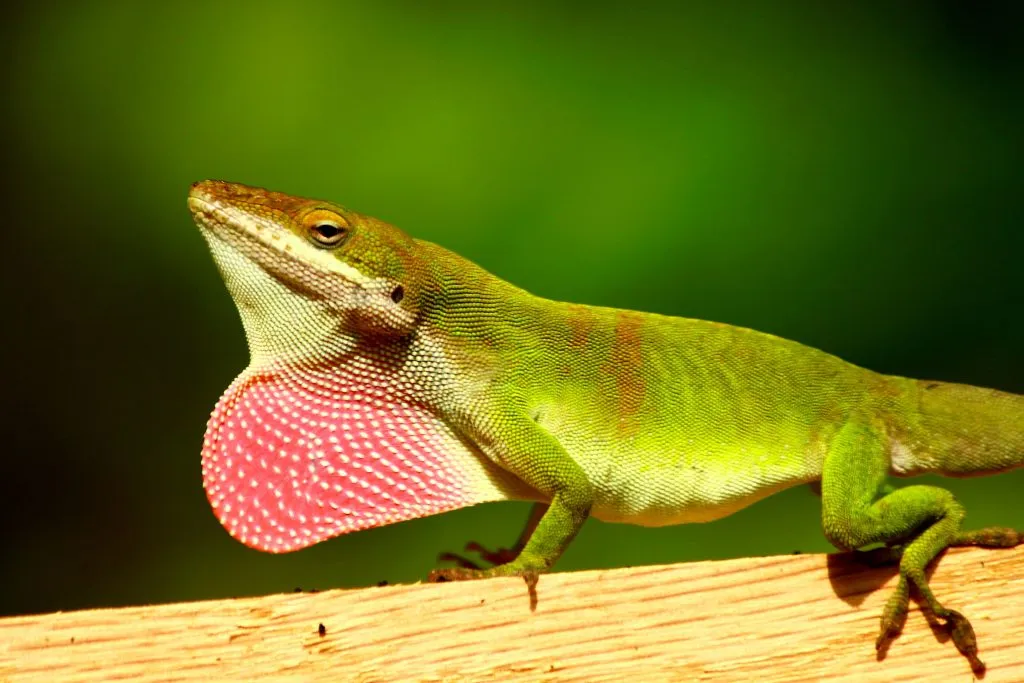
Housing your green friend with its own kind is quite frankly the safest and the best option, as this is exactly what they’re used to in the wild. Even so, you’ll have to keep two things in mind.
First off, keeping two males together is a big NO, no matter how large your
It’s best to house one male with other females, which brings us to the second point: only allow up to 3-4 females per male. Any more will cause them to fight for resources and compete for mating rights, resulting in stress.
Tank Space Required for Multiple Green Anoles
Anoles need space, so having a large
Here are the recommended
| Anoles | |
| 1 | 10 |
| 2-3 | 20 |
| 4-5 | 30 |
Chances of Reproduction with Multiple Anoles
Naturally, there’s a high chance of mating if you keep females with a male in one enclosure. So here are just a few things to keep in mind before introducing more anoles in your terrarium:
- Place plenty of plants in the
tank for females to safely lay eggs under - Monitor the females closely – pregnant anoles can get aggressive
- Make sure you have a spare enclosure for the hatchlings in case breeding occurs
Tip: Read our green ancole care guide to learn more about green anoles and their requirements!
2. Female Brown Anoles (Anolis sagrei)
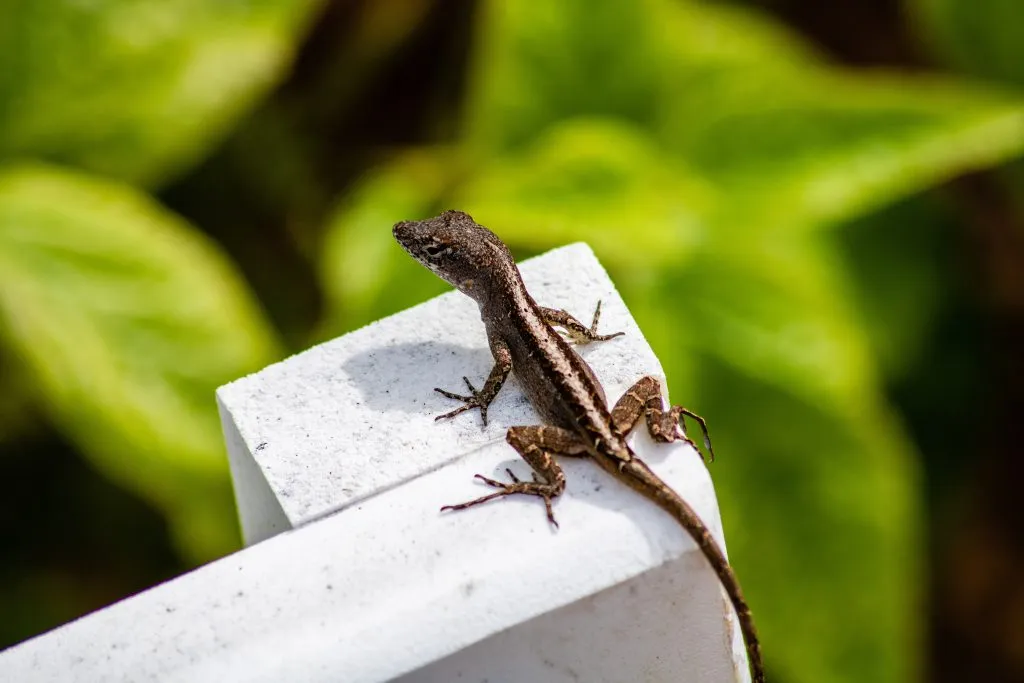
Research suggests that green anoles will get along with brown anoles just fine by keeping to themselves and ignoring the new inhabitants.
This works because while green anoles are naturally more arboreal and like hanging out in tall branches, brown anoles tend to stick to the ground and low-rise vegetation.
So if this is the route you choose to go, make sure your
Tip: With arboreal lizards like green anoles, it’s best to have a terrarium that opens from the front rather than the top, so your anole doesn’t get startled and sneak out. We recommend getting this terrarium!
3. American Green Tree Frogs (Hyla cinerea)
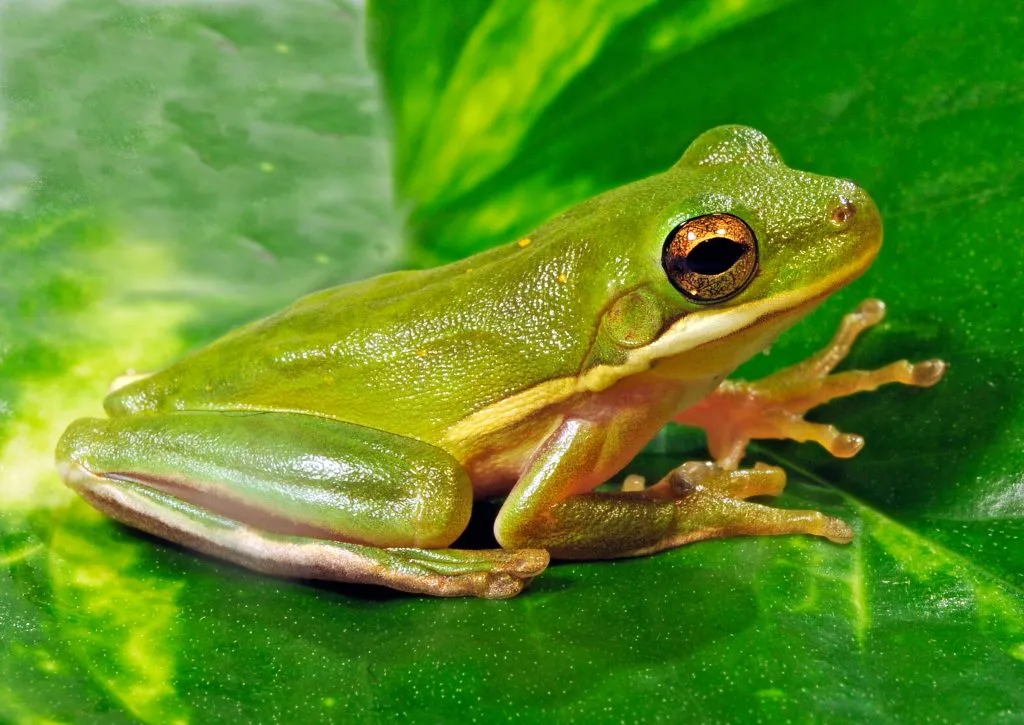
American green tree frogs can generally cohabitate successfully with anoles. Though it’s not ideal to keep amphibians and lizards together, these frogs, like anoles, are arboreal and have similar requirements.
They grow to be 2.5 inches at most, so they’re not a threat to your anole. You’ll need to make sure, though, that your
Close monitoring of any behavioral changes should also be done, which is why we don’t recommend this for novice pet owners.
4. House Gecko (Hemidactylus frenatus)
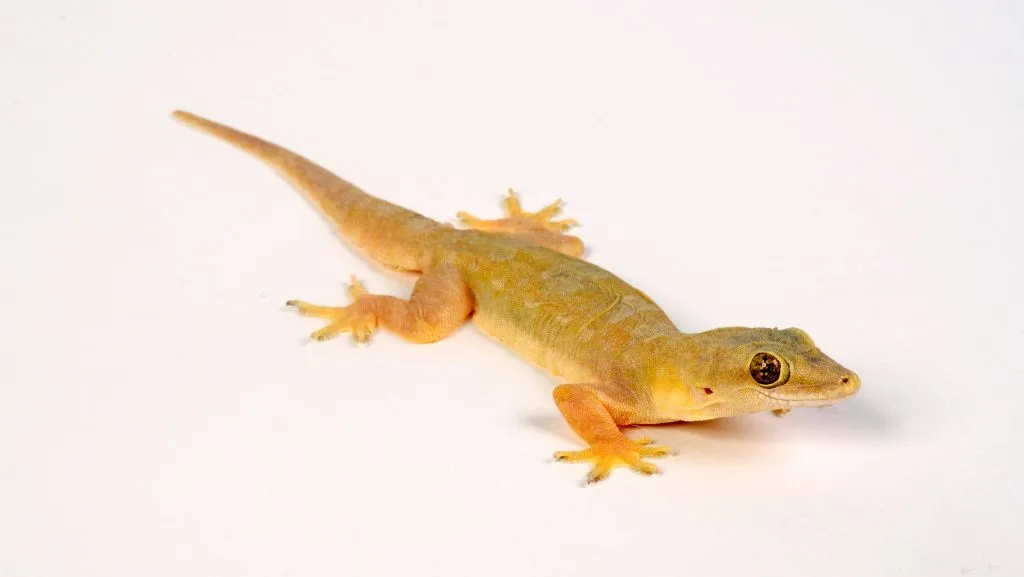
If you’ve got a
Plus, house geckos are nocturnal, while green anoles are up and about during the day, so both species won’t be seeing much of each other. Once again, experienced lizard owners are better off with this setup.
5. Crested Gecko (Correlophus ciliatus)
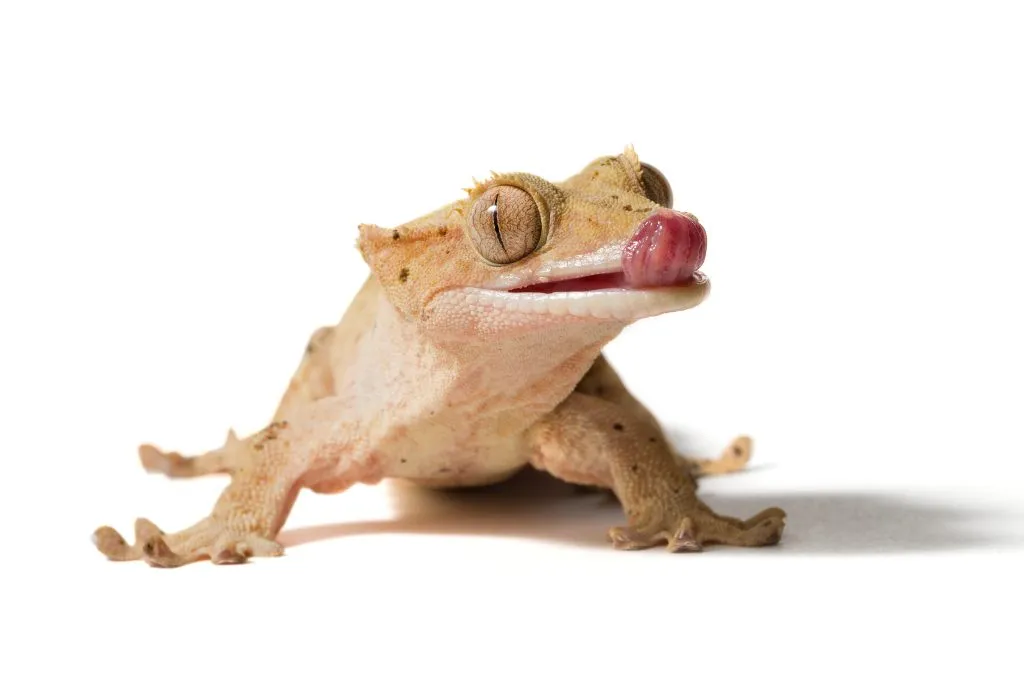
The same goes for crested geckos, which are also nocturnal and reside within plants. With a huge well-structured setup, including many hiding spots and close monitoring, green anoles and crested geckos can live peacefully together.
Wanna learn more about crested geckos? Read our crested gecko care guide here!
6. Fish
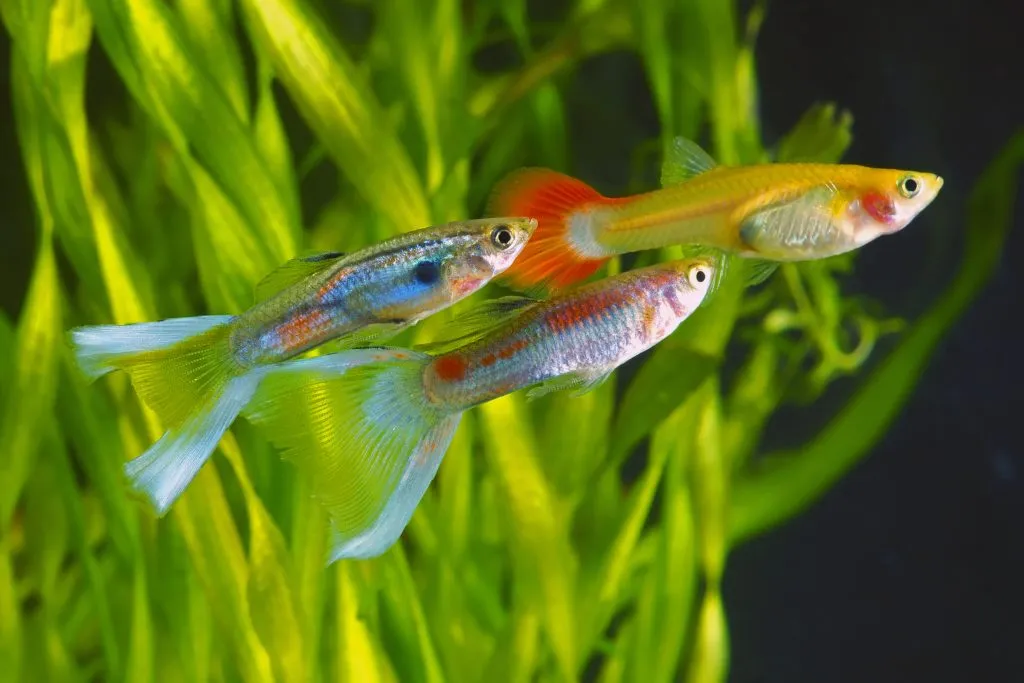
Setting up a paludarium with some fish as
Zebrafish and guppies are both suitable for cohabitating with green anoles. They measure no more than 2 inches when adults, so they’re the perfect size for a paludarium and won’t become prey for the anoles.
Tip: Having a shallow water depth is ideal because green anoles can drown in deep water. Remember to keep a sloping stick dipped in, so the anole can climb out in case it goes in the water. Putting a screencover over the water can work as well.
Author Name
Species to Avoid as Green Anole Tank Mates
It’s impossible to house the moisture-loving green anole with certain species, for instance, the leopard gecko that is used to a semi-arid climate.
And while some creatures do have similar habitats to the green anole, this certainly isn’t enough to give us the green light to cohabitate them.
Here are a few of such species and why it’s advised against experimenting with them:
1. Hermit crabs

Due to similar housing requirements, some people may find it tempting to keep land hermit crabs with anoles. However, those big sharp claws that move about quite often aren’t the safest to be around for anoles.
Plus, hermit crabs require a more humid environment than green anoles and finding an optimum level for both can be quite difficult. It’s simply not worth the trouble and risking their health.
2. Dart Frogs
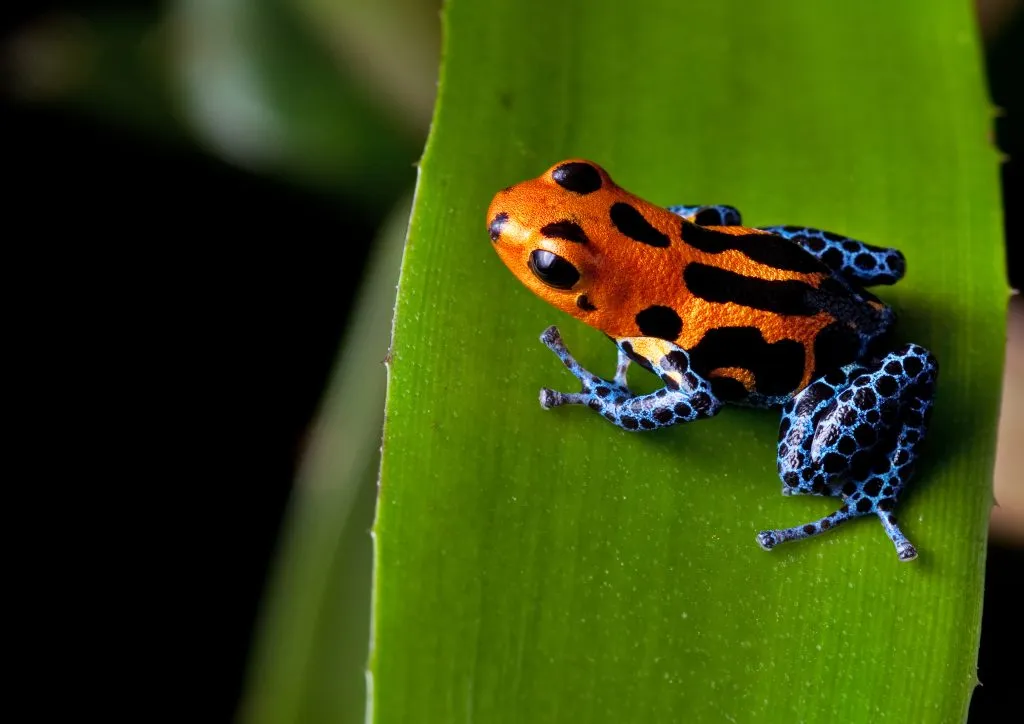
Some anecdotal evidence suggests that dart frogs can coexist with green anoles. However, we recommend against experimenting with them.
Though not poisonous in captivity, these frogs are very active diurnal creatures. This means they could easily be perceived as invasive by your anole and induce aggression.
More often than not, their tiny size also makes them susceptible to becoming prey for big green anoles.
3. Chameleons
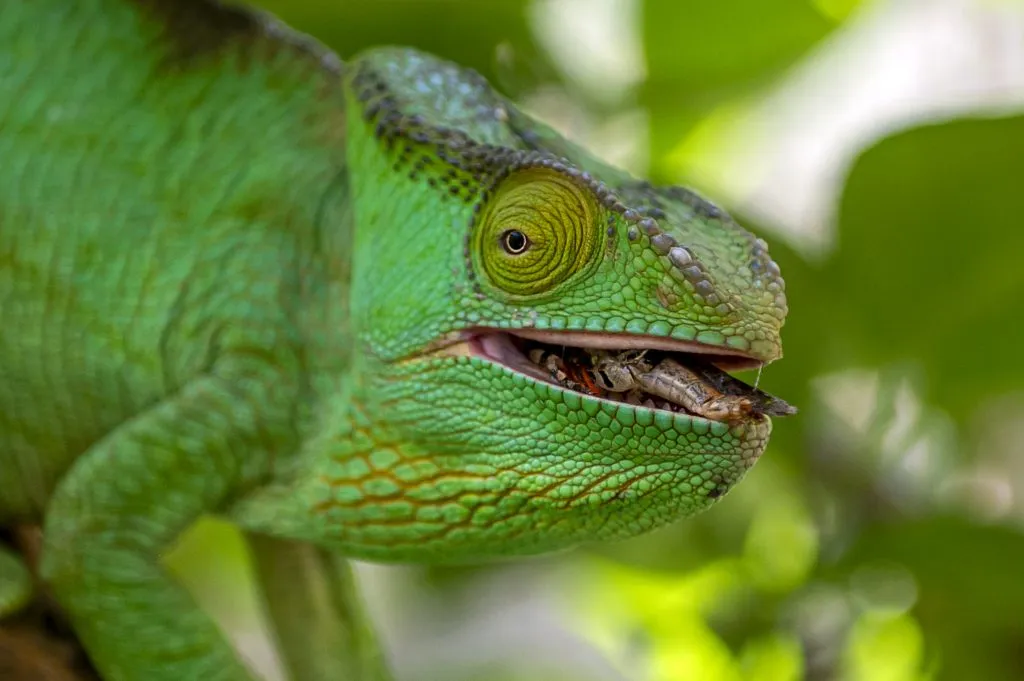
Chameleons are opportunistic omnivores, and will gladly make a meal out of your green anole and swallow it whole. Yikes.
If you wish to introduce a smaller chameleon species, then there’s a high chance it could become the anole’s target. Both situations can have dire outcomes, so it’s not worth pairing the two lizards together.
4. Bearded Dragons
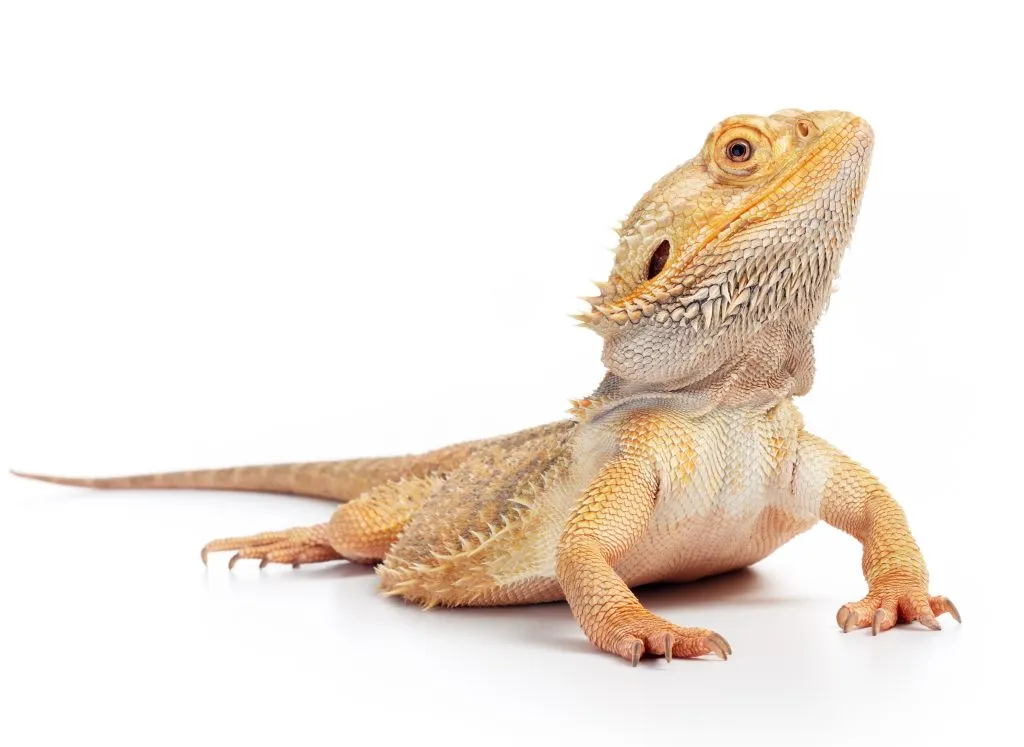
With vastly different humidity needs, bearded dragons should never be housed with green anoles. Even if you manage to put together a reasonable setup, your anole could end up being a hearty meal for the dragon.
Wanna learn more about bearded dragons? Here is our bearded dragon care guide!
Final Thoughts
Whichever species you choose as a buddy for your green anole, approach the whole situation with caution.
While green anoles can be perfectly peaceful with other anoles and a few more creatures, it is wise to keep a close eye on them, at least for the first few days.
- Enchi Ball Python: A Unique and Stunning Morph of Python regius - March 27, 2025
- Emerald Tree Monitor: The Enigmatic Green Guardian of the Rainforest - March 26, 2025
- The Egyptian Cobra (Naja haje): A Fascinating Serpent - March 25, 2025
